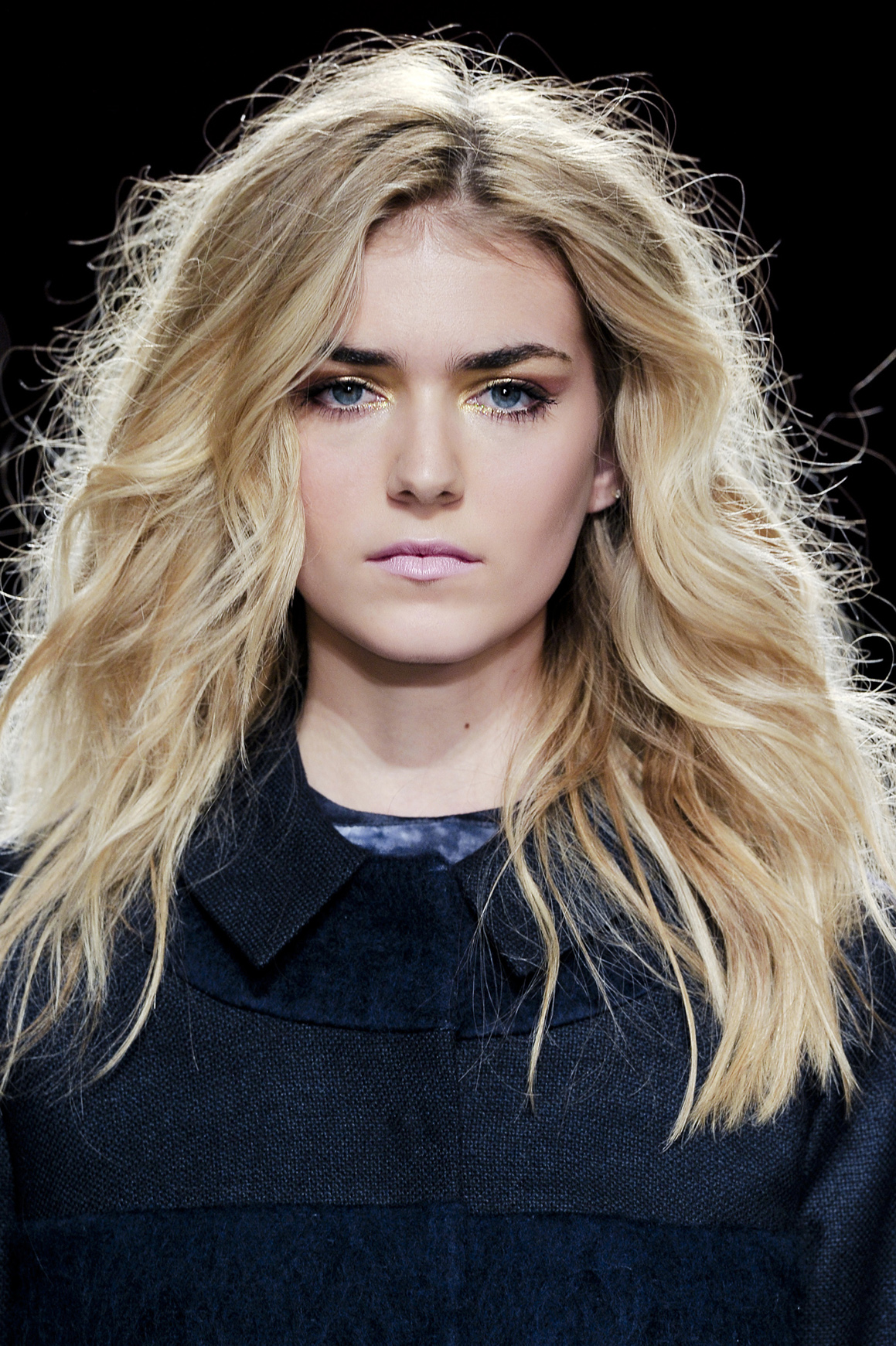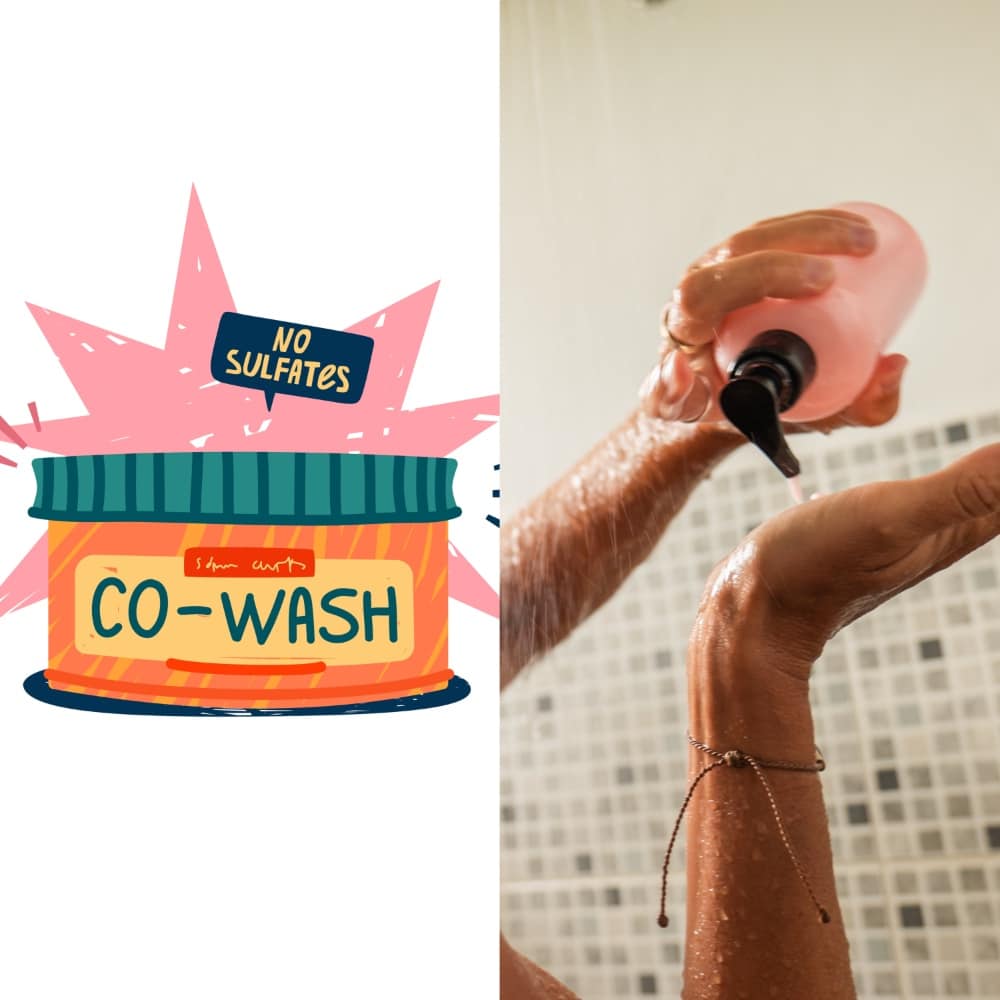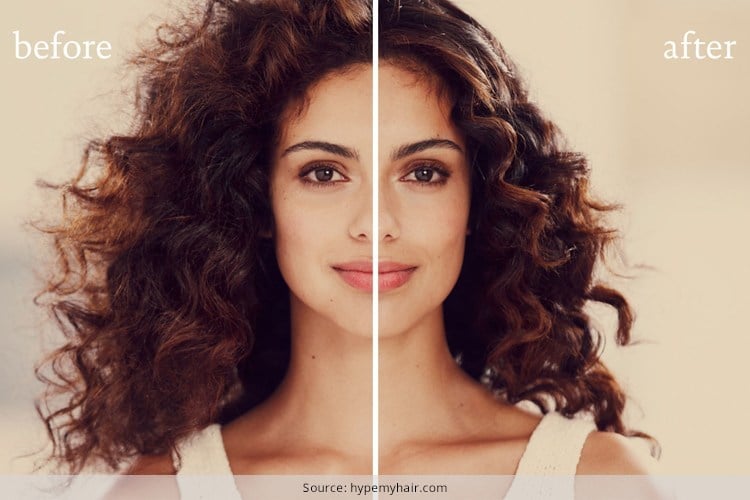Table Of Content

At Select, we work with experts who have specialized knowledge and authority based on relevant training and/or experience. We also take steps to ensure all expert advice and recommendations are made independently and without undisclosed financial conflicts of interest. Simply mix a few tablespoons of your choice of flour with lukewarm water to create a runny mix. Give it a few minutes so that optimal levels of vitamins and minerals can be released in the water, and then it is ready to be used.
Less Money Going Toward Your Hair Product Stash
However, removing buildup should always be a priority, especially for those with oilier hair types and heavy product users. If you are a heavy product user, be sure to have a clarifying shampoo on hand to bust that buildup. A shower routine with a co-wash can offer additional moisture to people who need it most — mainly, those with dry hair textures, who have curls, coils and kinks. Below, we compiled expert-recommended co-washes to help cleanse hair while actively replenishing moisture.
9 best cleansing conditioners and co-washes for curly hair types - Stylist Magazine
9 best cleansing conditioners and co-washes for curly hair types.
Posted: Tue, 15 Aug 2023 08:12:25 GMT [source]
How to Co-Wash Natural Hair
If you're committed to co-washing, use more water-based products that are easier to wash away without the need for drying suds. Both low-poo shampoos like Curl Crush™ Shampoo and co-wash products are designed to be gentle on curly hair and are typically free of sulfates, silicones, drying alcohols and mineral oils. However, there are some key differences between the two products. Generally, you can’t substitute a traditional conditioning formula for a co-wash.
Conditions, Nourishes, and Moisturizes Hair While Cleansing

"Co-washing is short for 'conditioner-only washing,'" says Jillian Halouska, OGX brand ambassador. While shampoo can easily cleanse hair at the roots, it too strips the hair, says Amarilis Badillo, a hairstylist at Tricoci Salon in Chicago, IL. Co-washes take shampoo out of the equation entirely, replacing the cleansing detergents with oils. Suitable for both kids and adults, this formula is a favorite of Mia Santiago, a hairstylist based in New York City and Columbus, OH. It has a blend of jojoba and macadamia oils, which helps smooth hair and make it more manageable, according to the brand.
"The process for co-washing and shampooing are not different at all," Bullock reassures. "All you do is add the co-wash to your scalp and hair and use your fingertips to gently scrub the scalp and hair, rinse, and repeat if needed." If you are a member of the natural hair community, chances are you are familiar with co-washing hair. In short, co-washing means using conditioner instead of shampoo and falls somewhere between squeaky clean and second-day hair. The act of co-washing has become more and more popular with those who who have curly and coily hair. The formula includes essential fatty acids, and vitamins A, C and E.
Hair Types That Benefit from Co-Washing and the No-Poo Method

Remember to consider your hair type, porosity, and individual needs when selecting the right product, and be patient as you figure out what works best for you. With the tips and tricks outlined in this post, you'll be well on your way to a successful co-washing routine that leaves your locks healthy and moisturized. Co-washing has become increasingly popular recently, especially among those with curly, wavy, or coily hair types. This is especially true for curly and natural hair textures that tend to be drier and feel the effects of parching formulas more, which is why co-washes can provide a happy medium, by cleaning and conditioning all at once. First, choose a co-washing product, like our upcoming Nutricurls Cleansing Conditioner, which gently cleanses your hair while boosting luminosity with camellia seed oil.
Pros and Cons of Co-Washing Hair
“I get the best curl definition from DevaCurl products in general, but the No Poo is one of my favorites,” says NBC Select SEO editor Nikki Brown. “The smell’s amazing and I find it super easy to detangle my hair after using it.” It won’t create a lather, though, so you do need to thoroughly massage it into the scalp to cleanse it, according to the brand. Oil washing uses the properties of certain oils to help cleanse your scalp and hair while moisturizing and sealing the cuticle. There are a few oils to choose from, some of the most popular being coconut oil for hair, olive oil, grapeseed oil and sunflower oil. Everything has pros and cons, and it’s best to know them all so you can make an informed decision. The pros and cons of foregoing shampoo and using no-poo cleansing conditioners are not really going to vary person to person.
It involves using a conditioner to cleanse the hair, which can be beneficial for some people. It is popular among those with dry, coarse, curly, or kinky hair to boost moisture. The presence of surfactants in conditioners means it is possible to wash the hair with just this product. However, unlike shampooing, cowashing will not strip the hair or scalp of as much moisture. Along with the benefits of co-washing, there are also some negative aspects to keep in mind. The truth is that, while co-washing can help to remove buildup from the hair, it doesn’t cleanse the hair and scalp as thoroughly as shampoo.
Using Ingredients That Don't Work for Your Hair
Assuming that they have healthy scalps, women with color-processed hair are also prime candidates for co-washing, as it allows them to go longer between salon treatments. "Co-washing doesn't strip strands of pigment the way traditional cleansing can," says hairstylist Jen Atkin. Curly hair can end up being coarse, and curls can feel dry and undefined. If that’s the case, it might be time to swap your daily shampoo for a co-wash.
“Conditioner does not possess any actual cleansing agents, so you will not receive a thorough — or any cleanse — with it,” says DeBolt. Plus, regular conditioners tend to have a heavier texture, so they can potentially weigh down curls. True co-washes are designed to rinse impurities from the scalp while nourishing hair. To that end, “a co-wash is a hybrid product that combines the properties of both shampoo and conditioner,” says Mark DeBolt, a hair colorist and the co-owner of Mark Ryan Salon in New York City. Unlike the two-in-one formulas of yore, these usually contain more conditioning ingredients; in fact, you can think of them as conditioners with a handful of cleansing agents.
I Didn't Use Shampoo for a Week. Here's What Happened. - 34th Street Magazine
I Didn't Use Shampoo for a Week. Here's What Happened..
Posted: Thu, 29 Mar 2018 07:00:00 GMT [source]
It's a good idea to counteract this with a scalp scrub or a product like DevaCurl Buildup Buster Micellar Water Cleansing Serum ($32) about once a week, depending on how often you wash your hair. Bullock also recommends haircare brand Ion for those in need of a good conditioning co-wash treatment. She calls their conditioners "ultra-gentle," writing that they "cleanse the hair while also repairing it." The vegan, gluten-free formula includes rosehip oil, B-vitamins, algae extract, almond oil and antioxidants to add shine and moisture to dry, damaged hair. We appreciate that there are no sulfates, parabens or silicones to be found in this formula. As a dynamic husband and wife duo behind Curl Centric, our passion for curly hair has fueled a transformative journey.
Co-washing is the act of washing your hair with conditioner — and only conditioner. It’s also known as conditioner-only washing and no poo (as in no shampoo). If you have coily, mixed-textured, curly, or extremely dry hair, there’s a chance that your hair care routine could benefit from it.
Additionally, those with scalp conditions such as dandruff might not find it effective enough for cleansing their scalp. Co-washing can help to add moisture and shine to curly or coily hair, which is especially prone to dryness, dullness, and damage. Ideal for curls and coils, this sulfate-free co-wash cleanses the scalp and hair while also adding back in moisture, according to Dove. It uses an emulsion technology that creates a barrier around hair fibers, giving each strand a slippery texture that makes detangling easy, according to the brand. Water washing is a surprisingly effective no-poo method if your hair is not too oily, and you are willing to detangle with just water. For this, warm water is used to open the cuticles, while massaging the scalp and rubbing the natural oils down the length of your hair.


No comments:
Post a Comment